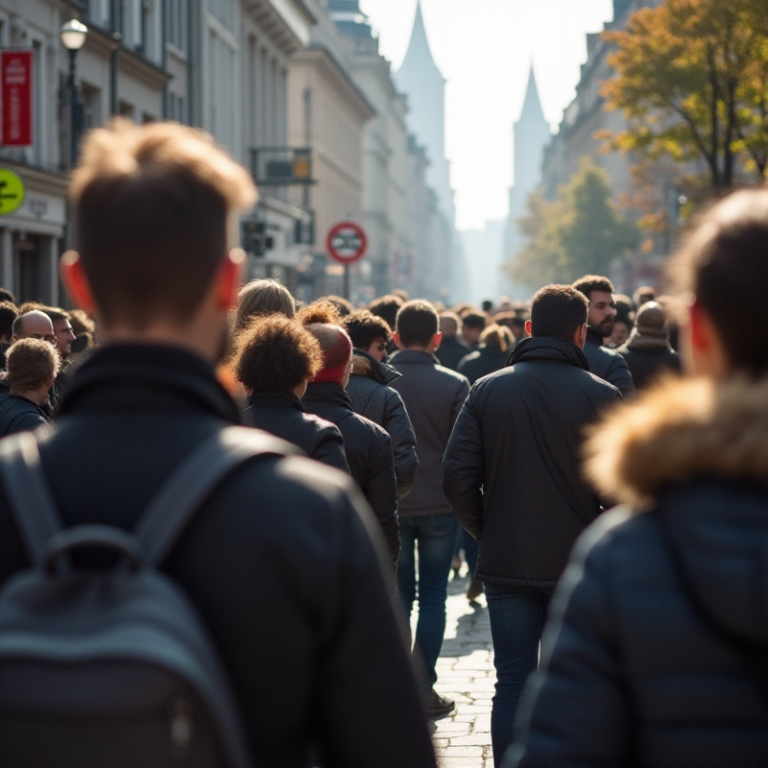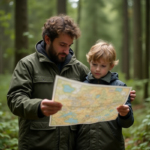Crowd safety has become an essential focus in today’s world, where staying safe often means staying away. Whether it’s a public event, a packed shopping center, or even an airport, there are times when avoiding large groups can make all the difference in protecting yourself from both visible and unseen risks. While most of us naturally enjoy being around others, it’s crucial to understand the many reasons why distancing yourself from the crowd can contribute to your overall safety and well-being. Here, we’ll explore why staying away matters and how practicing crowd safety could be a vital component of your personal security strategy.
The Growing Importance of Avoiding Crowds
The recent past has demonstrated how quickly crowds can form, and with them, how fast risks can escalate. From public health concerns like pandemics to the security challenges of large events, there are numerous reasons to avoid dense gatherings when possible. Here’s why:
- Health Risks: Large groups can spread illnesses rapidly. The close quarters and constant interactions in crowded settings allow viruses and bacteria to circulate freely.
- Increased Crime Potential: Crowds are prime targets for petty criminals. Pickpocketing, bag snatching, and even more severe crimes happen more frequently in bustling environments where it’s easy to blend in and disappear.
- Physical Safety Concerns: Even outside of crime, crowds can be unpredictable. Stampedes, crowd surges, and physical altercations are more likely to occur when emotions run high or exits are blocked.
- Loss of Personal Control: In a crowded space, the movement and actions of others can limit your ability to control your environment, putting you at a disadvantage if an emergency occurs.
Learning how to avoid crowds and navigate public spaces with crowd safety in mind will empower you to stay in control of your surroundings and protect yourself from various risks.
Key Situations Where Crowd Safety Matters
While it’s not always feasible to avoid crowds completely, certain scenarios call for extra caution. Consider steering clear or adopting special crowd-safety tactics during these situations:
- Public Events: Concerts, festivals, and sports games are great fun but are also places where security risks increase. Avoiding peak times or maintaining an exit strategy can help.
- Shopping Centers on Busy Days: Holidays, weekends, and major sales attract huge crowds. Plan your trips to such locations during off-peak hours or opt for online shopping when possible.
- Travel Hubs: Airports, train stations, and bus terminals are busy hubs where people converge from all over. Avoid the busiest travel times if you can, and be mindful of keeping a safe distance.
- Political and Social Protests: These gatherings can be unpredictable and may quickly escalate. If you happen upon a protest, consider rerouting to a safer area.
Practical Tips for Staying Safe by Avoiding Crowds
Knowing how to navigate your environment with crowd safety in mind doesn’t require complex skills or equipment. Here are some practical steps to help you stay safe:
- Scout Locations Ahead of Time
Before heading to a crowded place, check the layout and understand where exits and quieter areas are located. This helps you identify potential safe spots in advance. - Time Your Visits Wisely
Peak hours are often avoidable with a bit of planning. For example, grocery stores are often less crowded in the early morning, while many public events tend to ramp up later in the day. A simple schedule adjustment can dramatically decrease your exposure to crowds. - Maintain Awareness
Situational awareness is crucial for crowd safety. Keep an eye on your surroundings, monitor changes in crowd behavior, and pay attention to where exits are located. - Opt for Open Spaces
Choosing outdoor venues or large, open areas can help reduce risks associated with tight, enclosed spaces. Open spaces allow for better ventilation and provide more options to exit quickly. - Use Technology to Stay Informed
Many cities offer apps or updates on current crowd levels in popular areas. Use technology to find out where people are gathering in large numbers and decide accordingly if it’s safe to visit or not. - Have a Communication Plan
When venturing into a crowded environment, let someone know where you’ll be and set a communication plan. If you’re in a group, establish a meeting point in case you get separated.
Psychological Benefits of Avoiding Crowds
Crowd safety isn’t just about avoiding physical harm; it can also have mental health benefits. Large crowds can be overstimulating, leading to stress and anxiety for many people. By choosing quieter environments, you can better manage stress, enjoy your surroundings more fully, and even improve your decision-making skills by reducing external pressure. Staying away from crowds can promote a sense of calm and control, which are important for overall well-being.
Crowd Safety and Self-Reliance
For those who prioritize self-reliance, crowd safety is a valuable practice that aligns well with a self-sufficient lifestyle. Avoiding crowds reduces reliance on others to maintain security and allows you to take proactive control over your own safety. A self-reliant approach to crowd safety means assessing potential threats in advance, remaining aware of your environment, and making decisions that minimize your exposure to unnecessary risks.
Practicing crowd safety also underscores the importance of personal preparedness. When you avoid crowds, you’re actively reducing your dependency on others to get out of a potentially dangerous situation. By thinking ahead, you’re enhancing your personal resilience.
Embracing a Crowd-Safe Mindset
Crowd safety isn’t about isolating yourself from society; rather, it’s about understanding the risks that come with large gatherings and learning how to navigate them wisely. Whether it’s by adjusting your schedule, choosing less populated locations, or staying alert in high-traffic areas, adopting a crowd-safe mindset can offer significant benefits for both physical and mental well-being.
By avoiding unnecessary crowds, you reduce the likelihood of encountering health hazards, criminal activities, or even accidents that can happen when people congregate in large numbers. With these strategies in mind, you’ll be better equipped to stay safe, confident, and in control of your surroundings, wherever you go.



